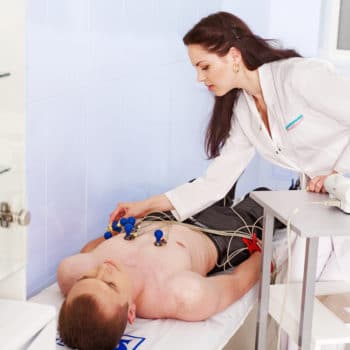Why We Love It
-
$45,730Potential Avg. Salary
-
23.2%Job Growth Rate
-
Growing DemandJob Outlook
-
Don't Take Work HomeCareer Attribute
Under direct supervision, a surgical assistant or technologist utilises specialised education to support the operating surgeon in the process of patient care in surgery, as well as the setup and preparation of the operating room for assigned surgeries.
Recommended Schools
What is a Surgical Assistant or Technologist?
Duties
A surgical assistant or technologist needs to carry out the following duties:
- Fully comply with the standards of practice and follow principles of utilising sterile techniques for surgical procedures, including closely observing the surgery for any risk of contamination and initiating remedial steps.
- Communicate clearly and courteously with physicians, visitors and other hospital employees, while maintaining patient and physician confidentiality.
- Provide support with preparation of surgical beds with clean linens, retrieving appropriate equipment, checking the condition of surgical lights and replacing faulty bulbs when required.
- Report the status of the operating room to staff and physicians handling the next shift while also restocking and returning equipment or supplies where possible.
- Support the surgical team by paying attention to detail and passing appropriate sterile items to doctors and nurses.
Day In The Life
As a surgical assistant, you will be assisting a surgeon or a surgical team in several ways. It starts with the preparation work required before an operation is conducted, right from setting up the operating room with all surgical instruments and equipment, and making patients ready for surgery by disinfecting and washing incision sites, assisting patients onto the operating table and covering them with sterile drapes.
Besides patient preparation, you will provide hands-on support with managing various equipment depending on the type of surgery, and supporting efficient surgical room turnaround. Surgical assistants also hold incisions open for clear access, wipe away blood during the operation and suture said incision at the end of the procedure.
Your tasks make you a vital part of the sterile team and you may not leave the operating room or come into contact with anything that is not sterile during the course of the surgery. After the operation is complete, this role requires you to assist the team with applying and securing bandages and other dressings to the incision site. Transferring the patient to recovery rooms and ensuring that all supplies are restocked in the operating room forms another important responsibility, once a surgery has taken place.
Work Schedule
A surgical assistant or technologist typically works at full time positions and will have to be on call at all times of the day including weekends, nights and holidays. You may also have to work longer than an 8-hour shift at one stretch. The nature of the work requires you to wear scrubs while operating. The work involves being physically fit to be able to move patients between the recovery room and operation theatre, and lift heavy trays of medical instruments when needed. It is also a risky job with numerous occupational hazards such as latex allergy, sharp injuries, blood borne pathogens, laser plumes, anesthetic gases, etc.
Growth Of The Job
Professionals in this field can look forward growth at 30% until 2022, which is faster than average for other professions. In the coming years, there will be an increase in the demand for surgical assistants, due to multiple factors.
With more advances in the medical field, surgery has become less risky and is performed more frequently to address many ailments and injuries. With an aging population, older people will need more operations. Future generations will be more willing to undergo medical surgeries for improving their life quality. For instance, a patient might be more receptive to undergoing a knee replacement surgery to be able to enjoy a better and comfortable life.
Typical Employers
Surgical assistants or technologists find work at medical clinics, hospitals and healthcare corporations. A few are needed at outpatient care centers or the office of physicians and other medical professionals that perform surgical procedures.
Recommended Schools
How To Become a Surgical Assistant or Technologist
To become a surgical assistant, you must firstly pursue relevant qualifications such as a degree program in nursing or surgical technology to master complex clinical concepts in the field. Then, you need to enrol in a recognized Surgical First Assistant accredited program for up to 22 months. Such a program requires you to hold at least a bachelor’s level degree in science or health fields, or have an associate’s degree with three years of work experience. Courses you cover will include, sterilization techniques, microbiology, anaesthesia and medical equipment usage, surgical anatomy and ethical considerations in surgery.
Surgical Assistant or Technologist Salary Data
We’ve provided you the following to learn more about this career. The salary and growth data on this page comes from recently published Bureau of Labor Statistics data while the recommendations and editorial content are based on our research.
National Anual Salary
Low Range
$32,030Average
$45,730High Range
$70,340National Hourly Wage
Low Range
$15/hrAverage
$22/hrHigh Range
$34/hrHow do Surgical Assistant or Technologist salaries stack up to other jobs across the country? Based on the latest jobs data nationwide, Surgical Assistant or Technologist's can make an average annual salary of $45,730, or $22 per hour. This makes it an Above Average Salary. On the lower end, they can make $32,030 or $15 per hour, perhaps when just starting out or based on the state you live in.
Salary Rankings And Facts
#443 Nationally for All Careers
Programs and Degrees
Here are the most common degrees for becoming a Surgical Assistant or Technologist. a is usually recommended and specifically a degree or coursework that prepares you for the particular field, see below.
Highest Education Among Surgical Assistant or Technologists
- 4.8% Doctorate
- 7.5% Masters
- 21.3% Bachelors
- 14.4% Associates
- 31% College
- 19.3% High School
- 1.7% Less than High School
Job Growth Projections and Forecast
2014 Total Jobs
102,2002024 Est. Jobs
125,900Job Growth Rate
23.2%Est. New Jobs
23,700How does Surgical Assistant or Technologist job growth stack up to other jobs across the country? By 2024, there will be a change of 23,700 jobs for a total of 125,900 people employed in the career nationwide. This is a 23.2% change in growth over the next ten years, giving the career a growth rate nationwide of Below Average.
Growth Rankings And Facts
#36 Nationally for All Careers
What Companies Employ The Most Surgical Assistant or Technologists
| Industry | Current Jobs | New Jobs Needed | % Increase |
|---|---|---|---|
| General medical and surgical hospitals; private | 39,200 | 2,800 | 3% |
| Offices of physicians | 9,500 | 2,100 | 2% |
| General medical and surgical hospitals; local | 4,500 | -100 | 0% |
















